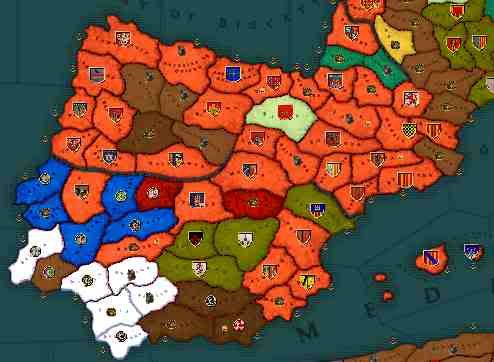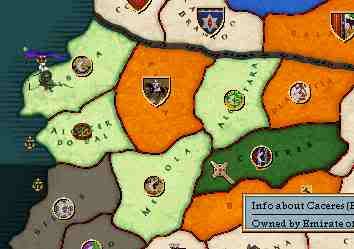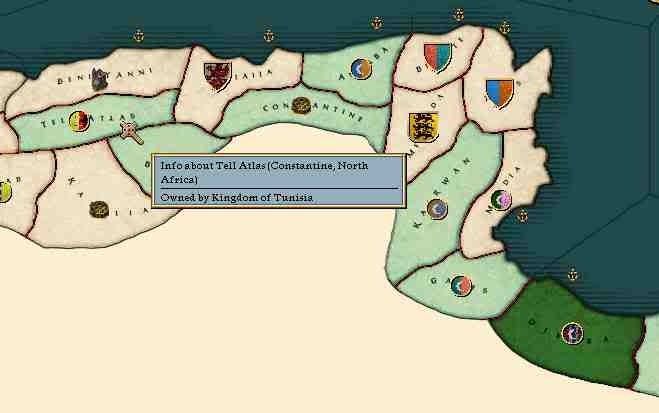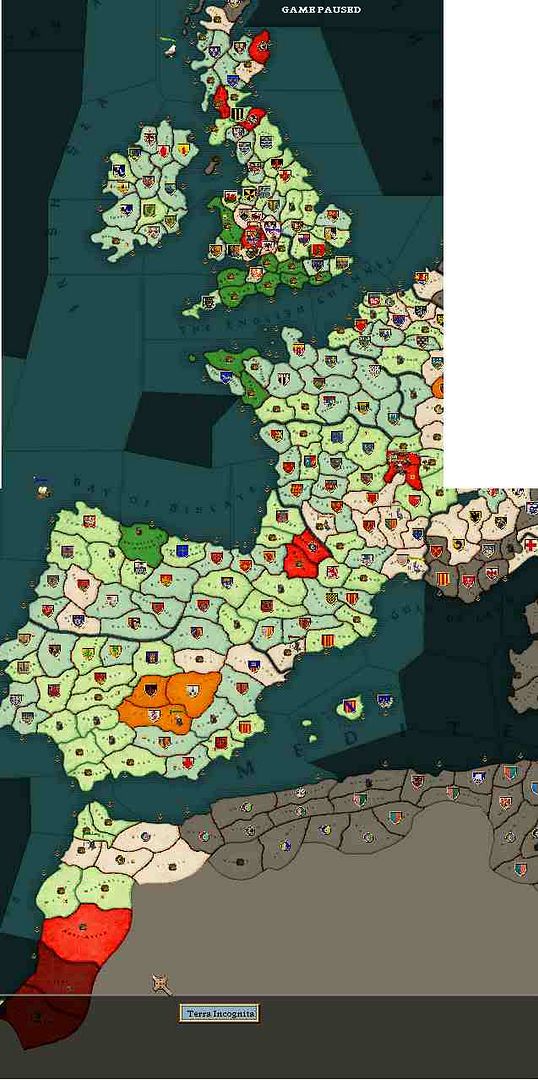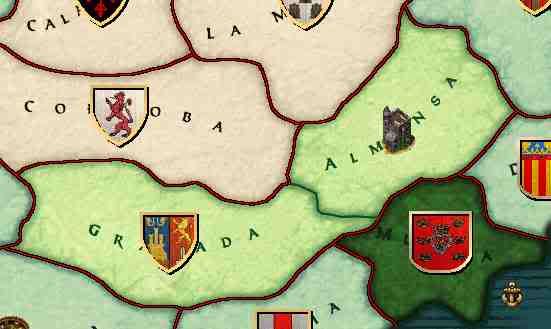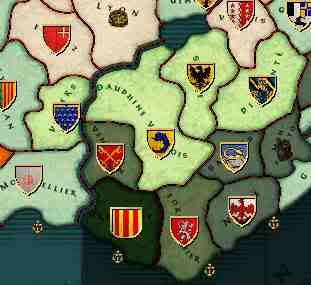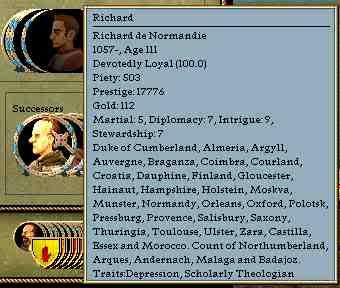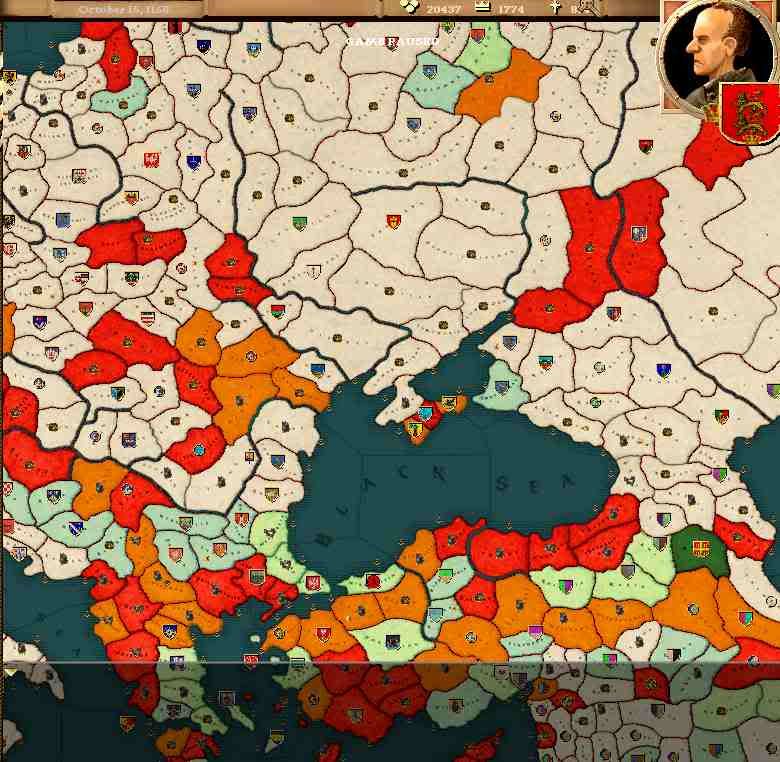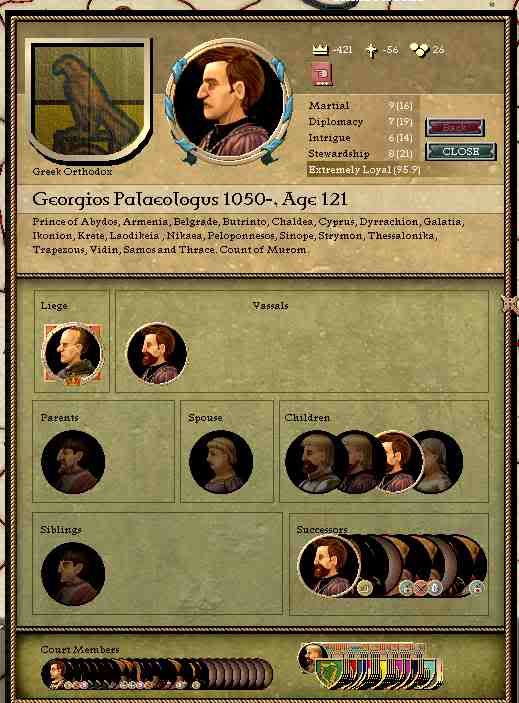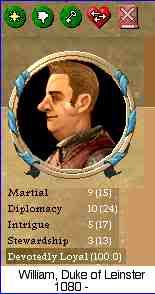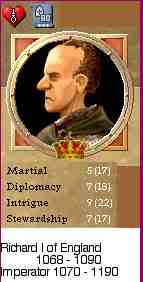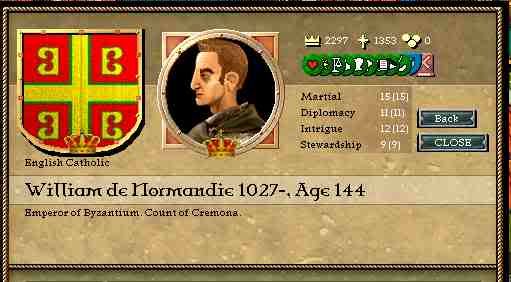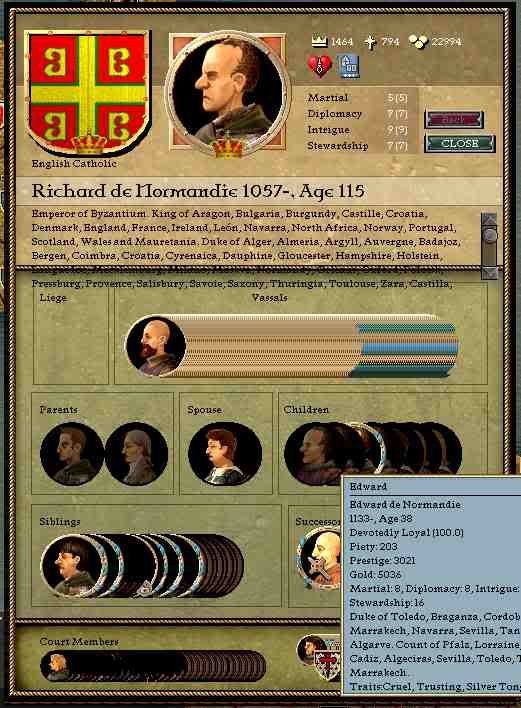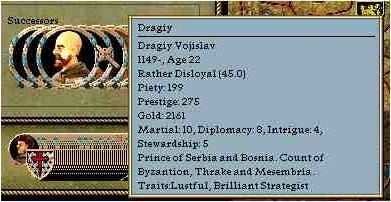The Traitor-Duke of Navarra Gains a County
When he was created Duke of Navarra Robert the Traitor had only one vassal, Joan Countess of Viscaya. However her Husband Edward was also a Count -- of Vasterbotton in Norrland, Sweden. Vasterottn was pledged to the Duchy of Samigotia, but somehow by the time their grandson inherited he had his grandfather’s primary title and his grandmother’s allegiance:
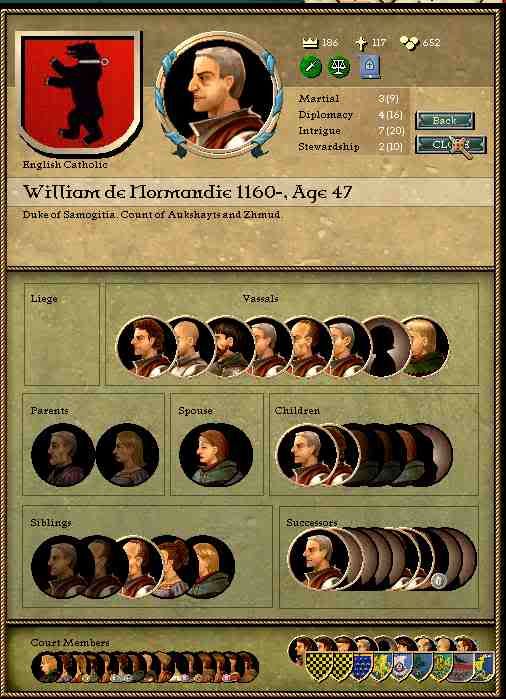
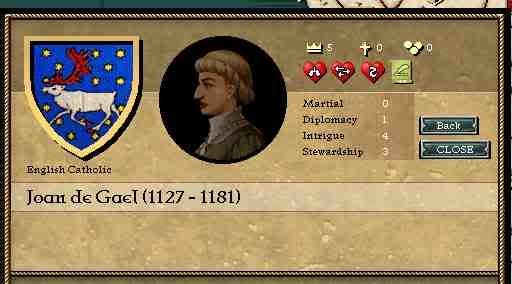
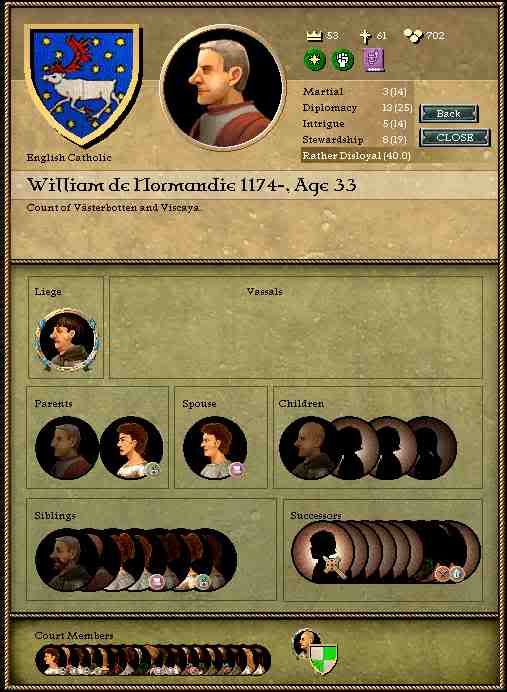
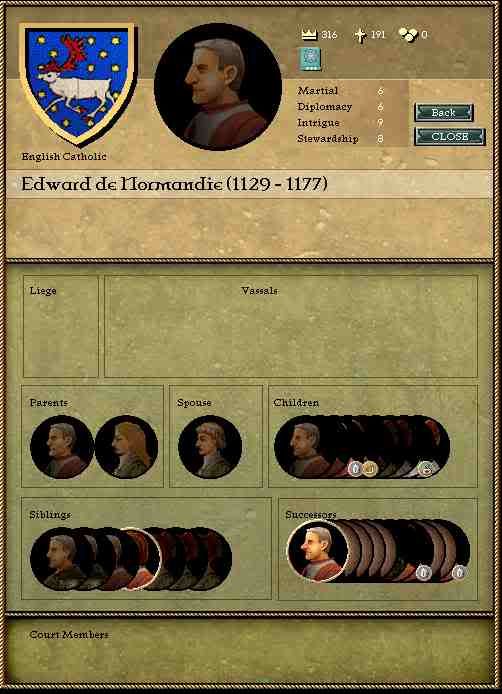
Robert the Traitor-Duke’s Fourth Rebellion
Unfortuneately for Edward, his title-granting only improved his reputation to Very Bad. Almost everyone hated him -- even his heir, Lukomorie of Anjou, was uncomfortable.

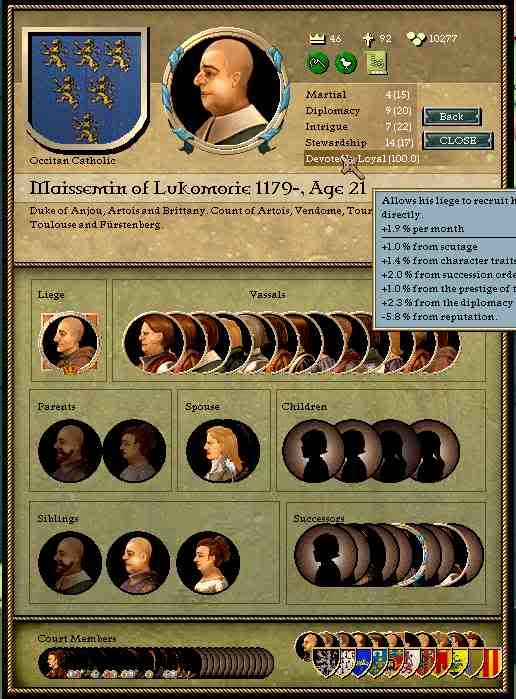
Surprisingly, the Traitor was among the first to rebel. The Traitor publically denounced his liege-lord’s heavy-handed tactics in dealing with the Vojislov King. Moreover he boldly announced such a person was unfit to be Lord of Dung -- and that by primogeniture Robert the Traitor was best qualified to lead the realm. This was a rather odd theory, as Robert’s brother Richard was the only other Roman Emperor, and he had sons to take over.
Edward’s strategy during this rebellions was to win a battle, and then accept a white peace. Disinheriting the flamboyantly serial Traitor would only hurt his reputation further.
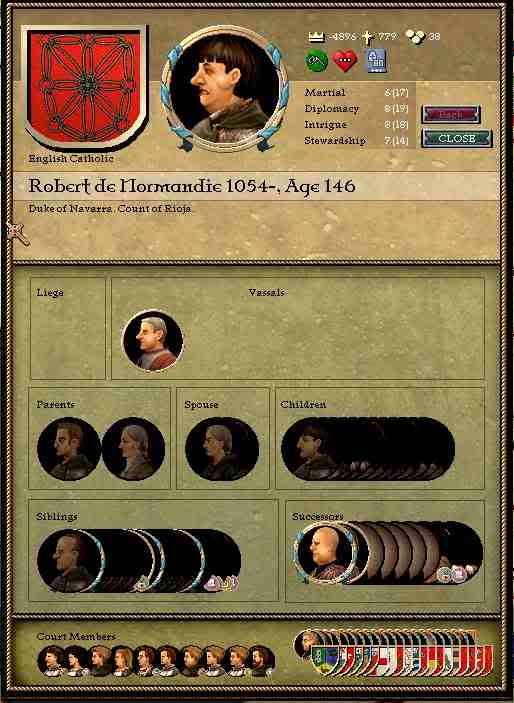
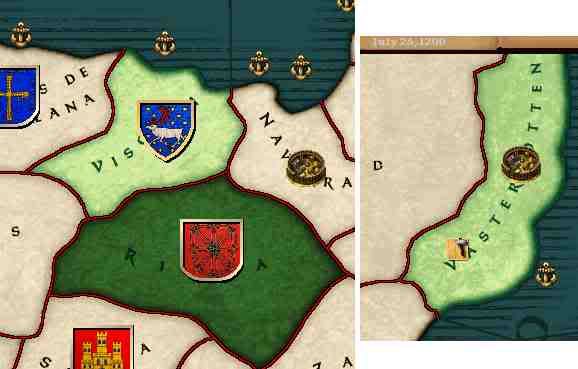
Unfortuneately Robert the Traitor was not the only traitor:
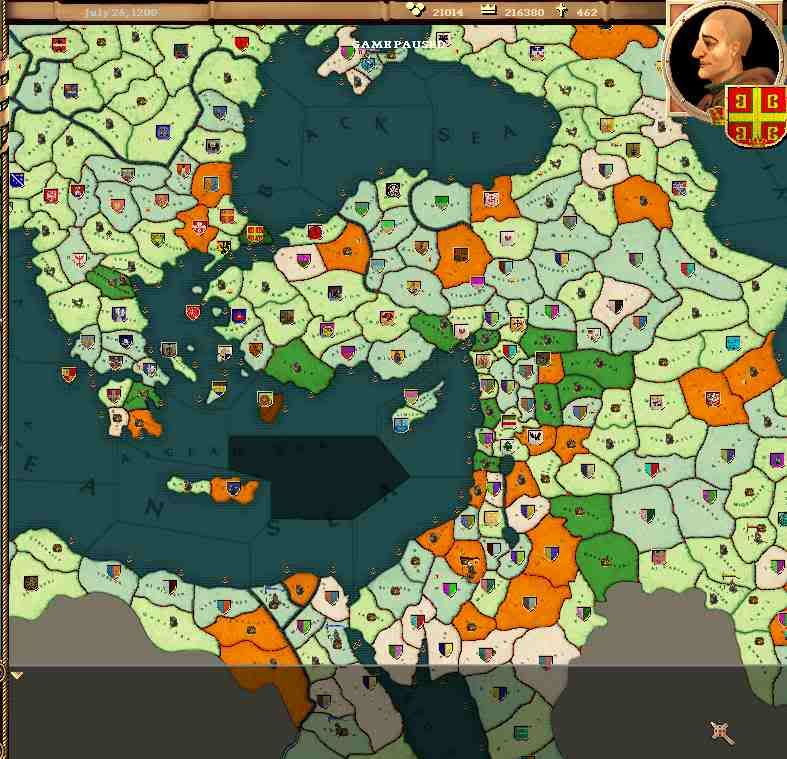
As you know, the Traitor lost his vassal a little while back. Evidentally the Counts of Vasterbotton tired of allegiance to an incompetant Traitor, best known for ruiniung Rioja, stabbing his father in the back thrice, and his great-grandson Edward I once. They are loyal vassals to your Imperial Majesty.
And thus have things stood my Emperor and kinsman, Cassian de Normandie of England, Byzantium, and Rome; Emperor of Christendom.
When he was created Duke of Navarra Robert the Traitor had only one vassal, Joan Countess of Viscaya. However her Husband Edward was also a Count -- of Vasterbotton in Norrland, Sweden. Vasterottn was pledged to the Duchy of Samigotia, but somehow by the time their grandson inherited he had his grandfather’s primary title and his grandmother’s allegiance:




Robert the Traitor-Duke’s Fourth Rebellion
Unfortuneately for Edward, his title-granting only improved his reputation to Very Bad. Almost everyone hated him -- even his heir, Lukomorie of Anjou, was uncomfortable.


Surprisingly, the Traitor was among the first to rebel. The Traitor publically denounced his liege-lord’s heavy-handed tactics in dealing with the Vojislov King. Moreover he boldly announced such a person was unfit to be Lord of Dung -- and that by primogeniture Robert the Traitor was best qualified to lead the realm. This was a rather odd theory, as Robert’s brother Richard was the only other Roman Emperor, and he had sons to take over.
Edward’s strategy during this rebellions was to win a battle, and then accept a white peace. Disinheriting the flamboyantly serial Traitor would only hurt his reputation further.


Unfortuneately Robert the Traitor was not the only traitor:

As you know, the Traitor lost his vassal a little while back. Evidentally the Counts of Vasterbotton tired of allegiance to an incompetant Traitor, best known for ruiniung Rioja, stabbing his father in the back thrice, and his great-grandson Edward I once. They are loyal vassals to your Imperial Majesty.
And thus have things stood my Emperor and kinsman, Cassian de Normandie of England, Byzantium, and Rome; Emperor of Christendom.


